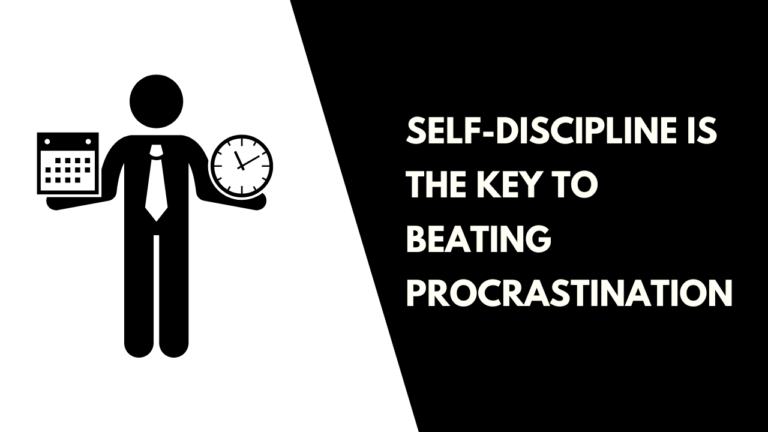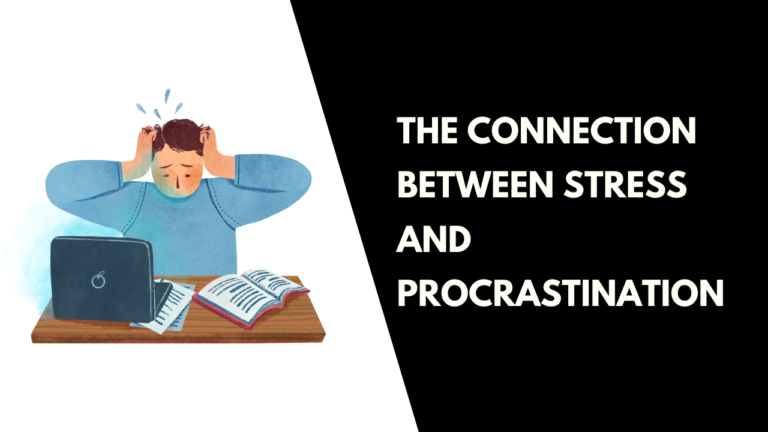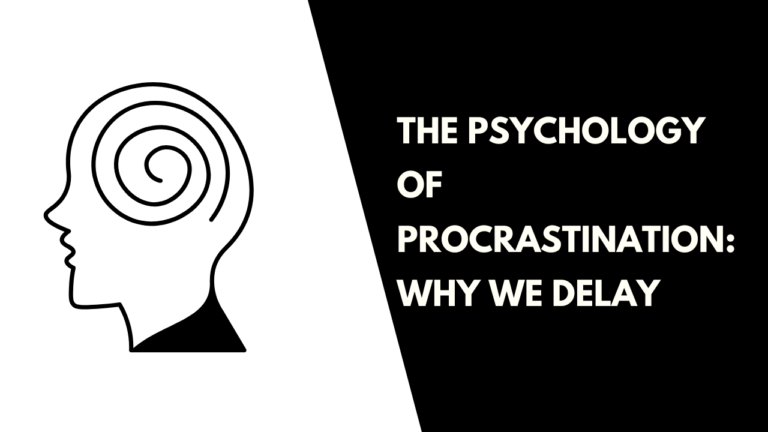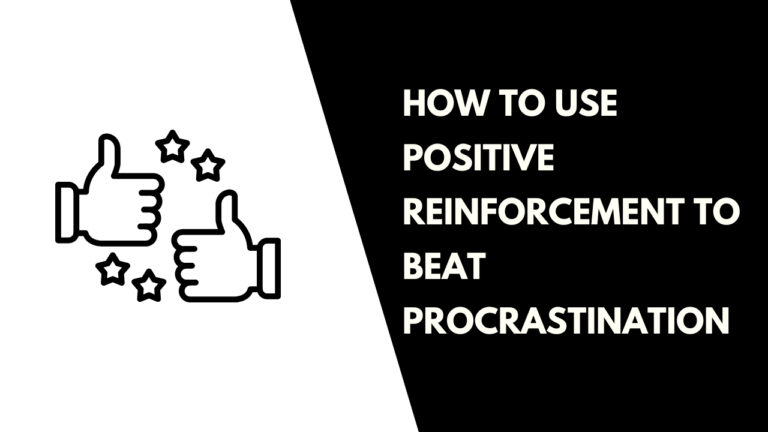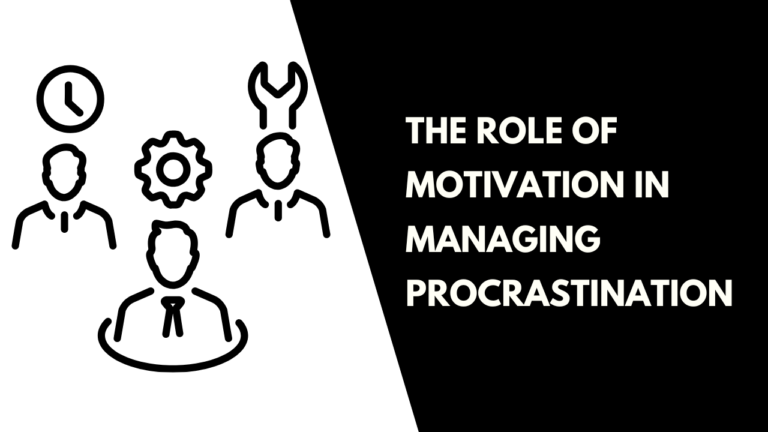What Procrastination Says About Your Personality
What Procrastination Says About Your Personality
Procrastination is a universal experience. Whether it’s delaying an important project, putting off cleaning the house, or waiting until the last minute to study for an exam, we’ve all been there. But have you ever wondered what procrastination says about your personality? It turns out that our tendency to procrastinate is more than just a bad habit—it’s often a reflection of deeper traits, emotions, and coping mechanisms. Let’s dive into how procrastination can reveal your personality and how understanding these insights can help you overcome it.
Table of Contents
ToggleThe Psychology Behind Procrastination
Procrastination is not simply laziness. Psychologists define it as the act of delaying tasks despite knowing there will be negative consequences. It’s a complex interplay of emotions, fear, and self-regulation issues. Understanding what procrastination says about your personality begins with understanding why you procrastinate.
For instance, if you delay starting tasks because you’re overwhelmed by perfectionism, it reveals a personality that is deeply concerned with doing things flawlessly. Conversely, if procrastination stems from boredom or a lack of interest, it could indicate a more free-spirited or easily distracted personality.
1. The Perfectionist’s Dilemma
Do you find yourself waiting for the “perfect” time to start? Or perhaps you’re afraid of not meeting high standards? Procrastination says about your personality that you might be a perfectionist. Perfectionists often fear failure and rejection, which leads them to avoid tasks altogether.
Real-Life Example:
Sarah, a graphic designer, delays submitting her designs until the last minute because she’s constantly tweaking every detail. She’s afraid her work won’t be good enough, and this fear paralyzes her. Her procrastination stems from a deep-seated need for validation and an unwillingness to accept anything less than perfect.
Actionable Insight:
If perfectionism fuels your procrastination, focus on progress, not perfection. Set realistic goals and remind yourself that done is better than perfect. Practice self-compassion and accept that mistakes are part of growth.
2. The Procrastinator as a Thrill-Seeker
Do you thrive under pressure? If you often wait until the last minute to complete tasks because the adrenaline rush motivates you, procrastination says about your personality that you might be a thrill-seeker. These individuals enjoy the heightened sense of urgency and find it hard to work without it.
Real-Life Example:
Mark, a college student, procrastinates on studying until the night before exams. The stress of impending deadlines gives him the focus he struggles to find otherwise. For Mark, procrastination is a way to create the intensity he craves.
Actionable Insight:
If you’re a thrill-seeker, try recreating urgency through artificial deadlines. Use a timer to set short work sprints and reward yourself for completing tasks on time. This way, you’ll enjoy the same excitement without the chaos.
3. The Avoidant Personality
Procrastination often says about your personality that you may be conflict-averse or struggle with self-esteem. Avoidant procrastinators fear judgment or failure and avoid tasks that might expose their vulnerabilities.
Real-Life Example:
Emily, a writer, delays sending her manuscript to publishers because she’s afraid of rejection. She’d rather avoid the potential criticism than face her fears. For Emily, procrastination is a shield against emotional discomfort.
Actionable Insight:
To tackle avoidance, confront your fears head-on. Break tasks into smaller, less intimidating steps. For Emily, sending a few pages for feedback instead of the whole manuscript could help ease her anxiety.
4. The Distracted Dreamer
If your procrastination stems from difficulty focusing or an inclination to daydream, it may say about your personality that you’re creative but easily distracted. Dreamers often struggle to stay grounded in the present, which makes task completion a challenge.
Real-Life Example:
Tom, an entrepreneur, has brilliant ideas but finds it hard to execute them. He starts new projects enthusiastically but quickly loses interest, moving on to the next idea. Procrastination reveals his challenge in maintaining focus.
Actionable Insight:
If you’re a distracted dreamer, use tools like task lists, calendars, and apps to stay organized. Prioritize one task at a time and celebrate small milestones to maintain momentum.
5. The Overwhelmed Overachiever
Does procrastination stem from having too much on your plate? It may say about your personality that you’re an overachiever who struggles with saying no. Overachievers often procrastinate not because they’re lazy but because they’re burned out.
Real-Life Example:
Linda, a manager, takes on every project offered to her, leaving her overwhelmed. She procrastinates on her tasks, not because she’s unwilling, but because she doesn’t know where to start.
Actionable Insight:
Learn to delegate and prioritize. Use techniques like the Eisenhower Matrix to distinguish between urgent and non-urgent tasks. Practicing self-care can also help you manage stress and prevent burnout.
6. The Fearful Avoider
Sometimes procrastination says about your personality that you have deep-seated fears of failure or success. These fears often manifest as avoidance behavior, leading you to put off tasks indefinitely.
Real-Life Example:
Alex, a software engineer, delays applying for promotions because he fears both failing in interviews and succeeding, which would bring new responsibilities. His procrastination reveals a fear of change.
Actionable Insight:
If fear holds you back, address the root cause. Practice mindfulness to understand your emotions and seek support from a mentor or therapist. Taking small, courageous steps can build your confidence over time.
The Science of Personality and Procrastination
Studies show that procrastination is linked to traits like impulsivity, low conscientiousness, and high neuroticism. However, it’s important to remember that these traits are not fixed. Understanding what procrastination says about your personality can empower you to make changes.
For instance, people with high impulsivity might benefit from structured routines, while those with high neuroticism could practice stress management techniques. By aligning solutions with your personality, you’re more likely to succeed.
Procrastination and Emotional Regulation
Emotions play a significant role in procrastination. Often, it’s not the task itself that we’re avoiding but the emotions associated with it—fear, boredom, frustration, or anxiety. Procrastination says about your personality that you might struggle with emotional regulation.
Real-Life Example:
Jessica, a teacher, avoids grading papers because it feels monotonous. Instead, she distracts herself with social media. For Jessica, procrastination is a way to escape negative emotions.
Actionable Insight:
To overcome emotional procrastination, practice mindfulness. Identify the emotions you’re avoiding and address them directly. Pair boring tasks with enjoyable ones—for instance, listening to music while grading papers.
How to Turn Insights Into Action
Understanding what procrastination says about your personality is only the first step. The key to change lies in turning these insights into actionable strategies. Here are some general tips:
Set Clear Goals: Ambiguity breeds procrastination. Define your tasks clearly and break them into manageable steps.
Use Positive Reinforcement: Reward yourself for completing tasks, no matter how small. This builds a positive association with productivity.
Create Accountability: Share your goals with a friend, mentor, or accountability partner.
Practice Time Management: Use techniques like the Pomodoro Technique to work in focused bursts.
Seek Professional Help: If procrastination significantly impacts your life, consider seeking guidance from a therapist or coach.
Embrace the Journey of Self-Discovery
Procrastination is not a flaw but a signal. It’s a window into your inner world, offering clues about your fears, motivations, and personality. By understanding what procrastination says about your personality, you can reframe it as an opportunity for growth rather than a source of shame.
So the next time you catch yourself procrastinating, pause and ask: What is this trying to tell me about myself? Use that insight to take small, intentional steps toward a more productive and fulfilling life.
Building Long-Term Habits to Overcome Procrastination
Breaking free from procrastination requires consistency and self-awareness. Here are additional habits you can develop:
Daily Reflection: Spend a few minutes each evening reviewing your day. Identify moments of procrastination and consider how you could handle them differently next time.
Visualize Success: Imagine how completing your tasks will positively impact your life. This mental exercise can boost motivation.
Leverage Technology: Use apps and tools like habit trackers, focus timers, and productivity planners to stay organized.
Practice Gratitude: Shifting your focus to what you’ve accomplished rather than what you haven’t can create a more positive mindset.
Procrastination doesn’t define you—it’s merely a behavior shaped by your personality and environment. By addressing its root causes and adopting proactive strategies, you can turn procrastination into a stepping stone for personal growth.
“Stop postponing your dreams! From Delay to Done is your ultimate guide to conquering procrastination. Grab your copy today on Amazon!


